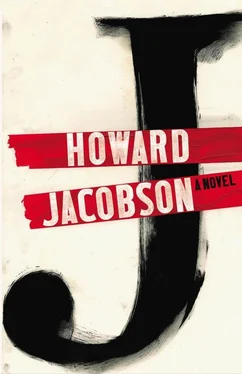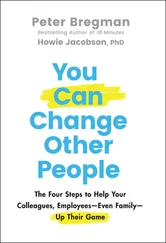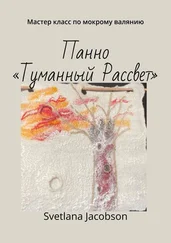They were at home, drinking tea and dunking biscuits at a scrubbed pine table, looking out over a ploughed field. A crow with a crazed orange eye was hopping with malign purpose from rut to rut. What sort of memory did he have, Ailinn wondered. How many thousands of crows past had it taken to teach him what he knew? And of them, of any of them — what knowledge did he have? Of his own past, even — just yesterday, for example — how much did he know?
Ailinn was nineteen. She had lived in this house how many years now. .? Twelve, thirteen? It should no longer, whatever the exact computation, have felt foreign to her. But its dry formality: the teapot with its woolly hat, the floral china tea set, the biscuits carefully arranged on the plate, three ginger, three chocolate digestive, the silver tongs for the sugar cubes, the perfectly ploughed field which, by screwing up one eye, she could move from the horizontal to the vertical plane, as though its parallel furrows were a ladder to the heavens, even her weary-eyed, unsmiling adoptive mother who had never quite become her mother proper — all this was to her the setting for some other nineteen-year-old’s life. As for where hers was, that she didn’t yet know.
She was artistic. A further reason to think she’d been abused. She drew in pastels: the rising field, the scrubbed table, her would-be mother (not her would-be father who found her skills uncanny and disconcerting), the demoniacal crows — great luminous, visionary canvases which her teachers admired for their ethereal, other-worldly atmosphere, though one of them feared her work was a little too reminiscent of Kokoschka’s dreamscapes. ‘Where do you go to in your head, Ailinn?’ he asked her.
‘I don’t go anywhere,’ she said, ‘I just draw what I see.’
She knew she was lying. She did go somewhere. She didn’t have a name for it, that was all.
And she didn’t know why she went there or what it was a memory or a foreboding, or just an idle fantasy, of.
The paper flowers were a sort of peace offering to her adoptive mother. Something nice to show how much she loved her, how grateful she was, how protected and at home she felt. But even the paper flowers looked as though they’d been picked from some other planet.
iv
Kevern had wondered, when he’d first discovered his depraved inheritance, whether it would put him off sex. That it should put him off sex, he didn’t doubt. But would it?
The answer was no. Or at least not entirely. He knew he had to take precautions. He couldn’t bring into the world a being who might show recessive symptoms of a kind which he — so far, at least — had not. And this meant not only being particular when it came to contraception, but going about coitus gently and considerately. Restoring to the act, maybe, something of the sacred. As it happened, such conscientiousness was not difficult for him: it accorded well with his precise, reluctant nature. He had not been put on earth to fling his seed around.
Ailinn didn’t mind that he didn’t pile-drive himself into her. It made a change.
‘Sleepin’ with you is like sleepin’ with a woman,’ she told him.
Though a clean enunciator out of bed, she made a habit of dropping her gs when verbalising sex. Sleepin’, screwin’, fuckin’, even makin’ love. He didn’t know why. To rough herself up a bit, perhaps. Or perhaps to rough up him.
‘Is that northern speech?’ he had asked her.
‘Nah. It’s my speech.’ With which she made a triumphant, tarty little fist.
So yes, it was her way of communalising their sex, taking what was special out of it, making it less fragile, putting them both on a more ordinary footing with each other.
Did she find him overscrupulous? Would she have liked him to swear? (Pog mo hoin?)
He unwound himself and sat up. They were in his bed. She had invited him to hers, an altogether more sweetly smelling chamber now that she had got rid of all the spiders and repainted it, with giant paper sunflowers everywhere, but he was uneasy about staying away from his cottage all night. And besides, he lived alone and she didn’t.
‘So “sleepin’” with me is like “sleepin’” with a woman. . I’m guessing you mean that as a compliment, though to me, of course, it isn’t. Unless you prefer sleeping with women.’
‘Never done it,’ she said.
‘So how do you know it’s like sleeping with me?’
‘Because sleepin’ with you isn’t like sleepin’ with other men.’
Men ! Couldn’t she have spared him that?
‘How isn’t it like sleeping with other men ?’
‘Well you don’t seem as though you want to hurt me, for a start.’
‘Why would I hurt you? Do you want me to hurt you?’
‘No I do not.’
‘Then what’s the nature of your discontent?’
She slipped out of bed, as though she needed to be upright when he questioned her as hard as this. He tried not to look at her feet.
‘I’m not discontented at all,’ she said. ‘It’s hard to describe what I feel. It’s as if you don’t care, or at least your first care isn’t, whether I feel you’ve entered me.’
‘Oh! Would you like me to signal when I have? I could wave a handkerchief.’
He made jokes, she noticed, when he was hurt.
‘No, I don’t mean that way. I’m really not complaining. It’s lovely. I’m not putting this very well but I don’t think you care whether you make a difference to me, sexually — inside — or not. Most men make a song and dance about it. “Can you feel that? Do you like that?” They want to be sure the conquest of your body is complete. They would like to hear you surrender. It’s as though you don’t mind whether I notice you’re visiting or not.’
‘Visiting?’
She took a moment. . ‘Yes, visiting. It’s as though you’re on a tourist visa. Just popping in to take a look around.’
‘That’s not how it feels to me. I’m not planning being somewhere else. You need to know that.’
‘Good.’
‘But it doesn’t sound very nice for you.’
‘Well it is and it isn’t. It’s a change not to feel invaded . It’s nice to be left alone to think my own thoughts.’
‘Thoughts! Should you be having thoughts at such a time?’
‘Feelings, then. You know what I mean — not having to go along with what someone else wants. Not having to be issuing periodic bulletins of praise and satisfaction. But what are yours?’
‘What are my thoughts and feelings?’
‘Yes. What do you want?’
‘Ah, now you’re asking.’
‘You won’t tell me?’
‘I don’t know.’
‘Don’t know whether you’ll tell me?’
‘Don’t know what I want.’
But he made her a lovespoon in which the two of them could be recognised, entwined, inseparable, carved from a single piece of wood.
In return for which she made him a pair of exquisitely comical purple pansies, a paper likeness of his face in one, hers in another. She arranged them in a vase on his dressing table, so that they stared at each other unremittingly.
‘When you dust them, do it lightly,’ she advised.
‘I will sigh the dust away.’ He pursed his lips and let out the softest emission of air, as though blowing a kiss to a butterfly.
‘I love you,’ she told him.
Why not, he thought. Why ever not? ‘I love you,’ he said.
As he’d told her, he wasn’t planning to be somewhere else.
He should not have judged his parents their sin. When the love thing is upon you there’s no one who can break you up. And he wasn’t even absolutely sure the love thing was upon him — yet.
v
She moved in. Or at least she moved her person in. He cleared space for her to make her flowers in his workshop but she couldn’t function in the noise and dust his lathe threw out. So she kept her studio, along with the majority of her possessions, in Paradise Valley. There was an argument on the side of sensible precaution for this anyway, though Ez said she wouldn’t take it personally if Ailinn moved out. ‘Follow your heart,’ she said. But Ailinn thought it was still early for that. She’d been alive long enough to know that hearts were fickle.
Читать дальше












